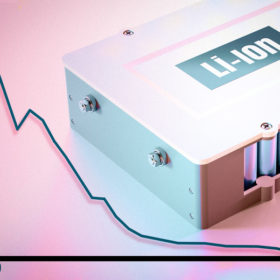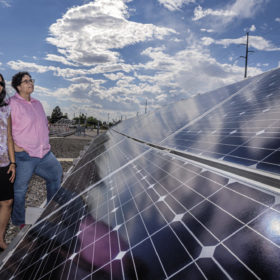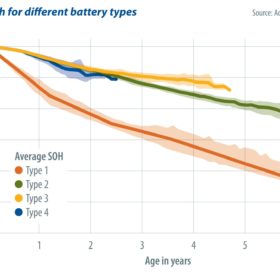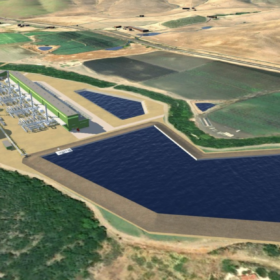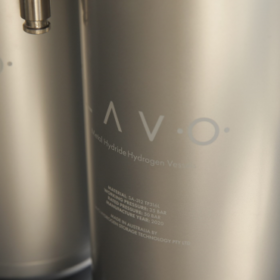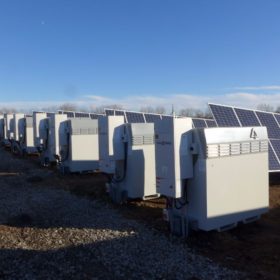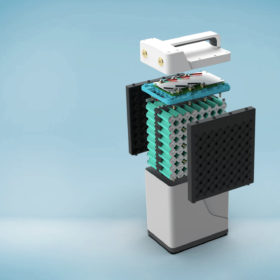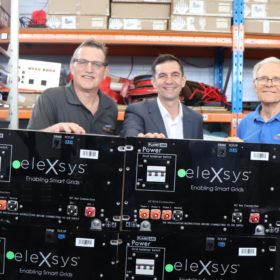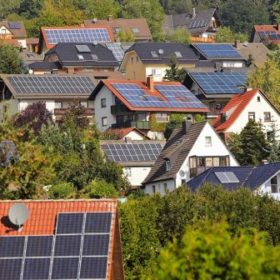Behind the price drops in lithium-ion batteries
Scientists in the United States pieced together data from hundreds of different sources, looking to establish the key factors that have led to consistently falling prices for lithium-ion technology since their commercialisation thirty years ago. They find that public-funded research, primarily in chemistry and materials science, has made the largest contribution to cost reduction. And they offer suggestions on policy and investment to ensure that the research can continue to make these important contributions to reduction in battery costs.
Phase-change material tech to store thermal energy, solar electricity in buildings
NREL scientists have unveiled a storage system based on a phase-change material that can store both thermal energy and electricity in a single device. According to the researchers, the new technology may be used to store excess electricity produced by on-site solar or wind operations in large scale buildings.
Sunday read: Forecast and prosper
At the risk of stating the obvious, PV performance will always be inextricably linked to the weather. Cloud cover significantly influences power output and severe weather events – including high winds, heavy snowfall, fire, and hail – can lead to module or structural damage. And with climate change making extreme weather events more common, the value of forecasting and understanding the worst Mother Nature can throw at a solar array is increasing.
Saturday read: Battery performance, uncovered
Batteries are taking the energy world by storm. From residential home storage systems to large-scale installations, today’s society increasingly relies on powerful batteries. And, as we all know, with great power comes great responsibility. But, how can we ensure that our use of batteries today is responsible, cost-effective, or even safe? Kai-Philipp Kairies, CEO of Accure Battery Intelligence, shares some of his experience gained from monitoring more than 750 MWh of various storage applications.
California plans 400 MW / 3200 MWh compressed air energy storage project
Hydrostor’s plant would be able to deliver 400 MW of electricity for 8 hours, and would be comparable in size to some of California’s largest fossil fuel power plants.
Hyped hydrogen storage company opts to manufacture fuel cells near Brisbane
Queensland continues to attract massive hydrogen industry factories, with LAVO Hydrogen Technology today announcing it would establish a fuel cell manufacturing facility just south of Brisbane.
Queensland to build “common-user” vanadium processing plant
The Queensland government will put “at least” $10 million towards constructing a common-user facility to process vanadium from the state’s vast deposits, allowing multiple small mining operations to access the facility with the ambition of kickstarting downstream battery storage industries in the state.
UK business claims to have ‘world’s most sustainable lithium-ion battery’
English manufacturer Aceleron claims every component of its devices can be accessed for replacement, repair or recycling, with the business’ co-founder stating the aim is to ensure ‘100% of the materials in our batteries will continue to be used for as long as possible – preferably forever.’
Queensland cleantech company wins grant to build manufacturing base in Australia
Brisbane’s eleXsys Energy has won a government grant which will allow the company behind Australia’s largest grid-connected microgrid to build its manufacturing base here in Australia.
“Crickey!” Rooftop solar makes South Australia the world’s first gigawatt-scale system to hit negative demand
Rooftop solar drove two negative demand events in South Australia on Sunday, November 21, events which analysts are describing as a world-first for a gigawatt-scale power system.
